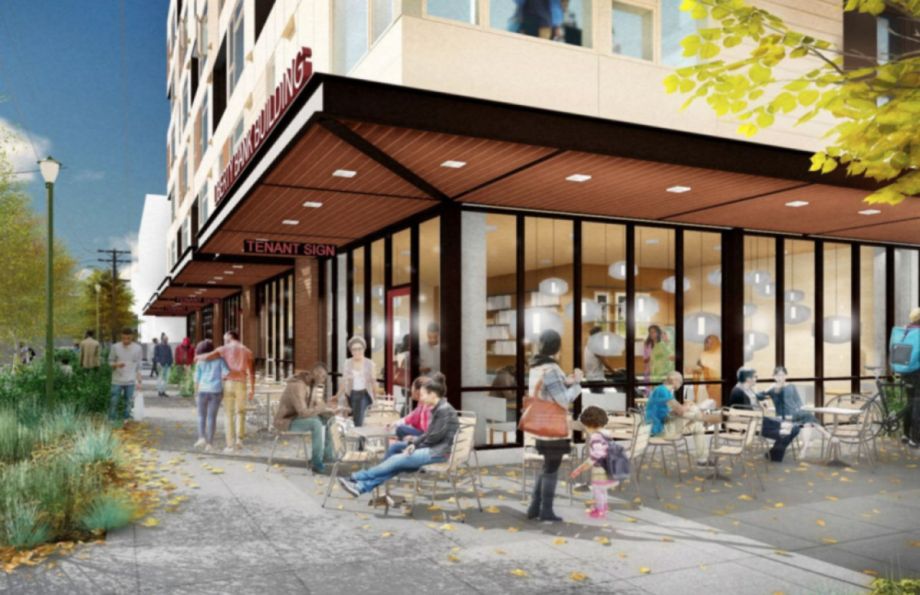In the long history of racial discrimination in housing and banking in the U.S., there are many smaller stories of marginalized communities organizing to resist and overcome these economic challenges. Some of the nation’s iconic black banks started mainly as a response to racial discrimination by mainstream banks. Citizens Trust Bank in Atlanta, founded in 1921. Industrial Bank in D.C., 1934. Carver Federal Savings Bank in Harlem, 1948. Seaway Bank in Chicago, 1965. Now, perhaps more than ever, it makes sense to preserve the memory of those stories, whether or not the institutions remain. Efforts are underway to do just that in Seattle.
After surviving decades of discrimination from mainstream banks, residents of Seattle’s Central District founded Liberty Bank in 1968. It was the first black-owned bank west of the Mississippi. Just east of downtown, the Central District was where racial restrictive covenants steered the city’s black families from the 1920s till 1968, when such covenants were technically outlawed. In 1968, its population was around 60 percent black.
Liberty Bank provided much-needed services to the community as a black-owned bank until 1988, when it was acquired by another bank, which was later acquired by another bank, which shut down the branch in 2013. Over that time span, much changed in Seattle. Central District’s proximity to downtown drew residents tied to a new economy driven by the likes of Amazon and Microsoft. Today, the Central District is less than 20 percent black, and getting less black by the year.
A new partnership to redevelop the site of the former Liberty Bank and surrounding blocks aims to preserve the memory of the institution while also leveraging that history to create a new economic and cultural hub for Seattle’s black community.
“When people talk about gentrification, especially in Seattle, it’s talked about like it’s inevitable, that communities don’t have a say in development and it just happens to us or for us,” says Ashwin Warrior, project spokesperson for Capitol Hill Housing (CHH). “We’re hoping this project can demonstrate that communities can create something in a neighborhood too.”
Warrior says CHH acquired the site at a discount from the previous bank owner, in part due to CHH’s reputation as a community-driven affordable housing developer in Seattle. They’ve got 48 buildings in their portfolio across the city, and the average income of their residents is $23,000, according to Warrior.
As lead developer on a project, the first thing CHH does is convene a local advisory board. In this case, the advisory board included two daughters of the original Liberty Bank founders, a former executive director of Liberty Bank, longtime community members and leaders in the Central District, and religious leadership.
“I am grateful for the opportunities this project creates. Uplifting the community was the founders’ vision and purpose. With this project, keeping the legacy of Liberty Bank current and relevant is now a shared vision — it is our shared history,” Michelle Purnell-Hepburn, a member of Liberty Bank Building Advisory Board and daughter of two of the founders of Liberty Bank, said in a press release about the deal.
Construction of the building is scheduled to begin spring 2017. When completed, the Liberty Bank Building will be a 6-story, mixed-use project at 24th and Union with commercial space on the ground floor and 115 units of housing for people earning between $31,650 and $54,180, depending on family size (based on percentages of area median income). The units will be a mix of studios, one bedrooms and two bedrooms. The current ground-floor plans include a resident lounge and lobby available for community events and a resident workshop or makerspace. The lobby is slated to feature the former bank vault door as an internal feature, and the exterior of the building will be partly covered in salvaged bricks from the original Liberty Bank structure.
CHH took several additional steps. Besides working with the advisory board and neighborhood partners to design the building, two local organizations will share in ownership of the building: Africatown-Central District Preservation and Development Association and Centerstone. After 15 years, Centerstone will also have first right to offer and first right of refusal for acquisition of the building.
A third black-led organization, the Black Community Impact Alliance (BCIA), joined in on an overall commitment to “use the development of the site as a vehicle of the empowerment of the African-American community.”
“We’re leaning on community partners to tell us what kind of businesses would make this a community hub for the African-American community, and how to set lease terms and also the design of the commercial space to make that happen,” says Warrior.
In addition to the ownership structure and a commitment to preserve and connect the history of the site to the surrounding community, there’s also a promise for affordable commercial space, opportunities for minority- and women-owned subcontractors (MWBEs) and local hires to work on the project, and also $5,000 from CHH per year for three years to help establish a “business innovation fund” to support small, black-owned business development in the Central District. It’s a small figure, Warrior admits, but it’s only a start for the fund, and the partners hope it will help with build-out or move-in costs.
The partnership is working with Walsh Construction as the general contractor on the project. Out of $12 million in estimated subcontracting opportunities, Walsh has agreed to direct at least 21 percent of that to MWBEs.
“What we really appreciate about Walsh is they give a lot of flexibility, portioning off different parts of the project to fit with capacity of MWBE subcontractors,” Warrior says.
The city is excited about the project. Mayor Ed Murray’s Office, the Office of Housing and the Office of Economic Development have all supported the project in some way, including a $12.2 million loan, covering much of the $32 million in total development costs. The rest is coming via low-income housing tax credits, a loan from the state housing trust fund and other smaller sources. CHH is also deferring a $1.3 million developer fee for the project.
CHH hopes the biggest impact will be challenging other developers to take on similar community-driven projects. “We’re hoping this can be used as a demonstration to start asking tough questions to some of the other developers in the neighborhood about why aren’t we doing more with the community,” he says.
The Equity Factor is made possible with the support of the Surdna Foundation.

Oscar is Next City's senior economic justice correspondent. He previously served as Next City’s editor from 2018-2019, and was a Next City Equitable Cities Fellow from 2015-2016. Since 2011, Oscar has covered community development finance, community banking, impact investing, economic development, housing and more for media outlets such as Shelterforce, B Magazine, Impact Alpha and Fast Company.
Follow Oscar .(JavaScript must be enabled to view this email address)

















